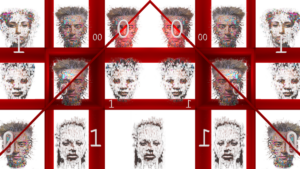Deepfakes and Elections: The Risk to Women’s Political Participation
Originally published by Vandinika Shukla for Tech Policy Press
The recent circulation of AI deepfake pornographic images of Taylor Swift on social media appeared to bring momentum to the fight for legal consequences for nonconsensual intimate imagery and other forms of synthetic media. But in time, this incident is more likely to serve as another emblem of the use of digital and social media to drive women out of political life. While Taylor Swift is unlikely to be deterred from public life by such an incident, the chilling effect of AI-generated images and videos used to harass women in politics is a growing phenomenon.
Despite early alarms from Black feminists and years before realistic deepfakes of Zelensky spreading misinformation about the Ukraine war or robo calls impersonating Joe Biden, realistic deepfakes of women and minorities have long been potent vectors of tech-facilitated gender based violence. In a blockbuster election year punctuated by new generative AI threats, the impact of online violence against women will have a silencing effect on the political ambitions and engagement of women and girls, decreasing their presence and voice in politics and public life.
But tech facilitated gender-based attacks can be a solvable problem. We need stronger legislation, better access to data, and an eye on the ground through election observers to create a new precedent for online safety of women and girls.
The landscape of online violence against women in politics
Online violence against women includes aggression, coercion, and intimidation that seeks to exclude women from politics simply because they are women. It targets individual women to harm them or drive them out of public life, but also sends a message that women don’t belong in politics – as voters, candidates, office holders, or election officials.
This year much of the world will go to the polls in an era of hyper-convincing synthetic media capable of generating images and audio with realistic vernacular and across multiple languages generated, and disseminated automatically and at-scale. Targeted attempts to deter women’s political participation will become more harmful not only for the 2024 election year but also for future generations where young women will make the calculation that it is too costly to enter the public sphere.
In a recent conversation with the Center for Humane Technology, legal scholar Dr. Mary Anne Franks spoke about how the rise in deepfake porn has shifted the landscape for women online, “All they really need is a few photos or videos of your face, things that they can get from innocuous places like social media sites. The next thing you know, a person can produce an image or a video of someone that makes it look like an intimate depiction, when in fact it never took place.” According to one often cited statistic, ninety-six percent of deepfakes online depict women in non-consensual pornography. The sheer volume of elections combined with both the accessibility and gamification of producing deepfakes – as we witnessed with 4chan message boards where a ‘daily challenge’ asked users to create adult AI images with the best proprietary engine instead of the more common open-source models – means the market for such materials is likely to boom.
Lucy Purdon, founder and director of the nonprofit advocacy organization Courage Everywhere, has worked on the Kenyan elections since 2013 and is an expert on gender justice and technology. Reflecting on the implications of this perfect storm for female politicians, she noted that “Online harassment will have a higher cost for female politicians because that harassment manifests in not just attacks on political competency but a cultural rejection of women. Women candidates are already too underfunded to challenge sexualised and gendered disinformation and will always risk stronger retaliation.”
The retreat of women online can have big implications for governance and democracy. A global survey of 14,000 girls in twenty-two countries found that 98% use social media, and half reported being attacked for their opinions before they were old enough to vote. Consequently almost 20% of respondents stopped posting their opinion. The playing field drastically changes in political contexts where a woman’s identity is already under constant threat. Online slurs or violence can quickly turn into direct physical threats. The National Democratic Institute measured the impact of attacks on women’s political participation in online political discourse in Kenya, Columbia, and Indonesia by tracking the Twitter engagement behavior of politically-active women before and after they experienced online attacks. NDI found “strong evidence” that online abuse “decreased women’s willingness to continue engaging in social media.”
Meanwhile when we look at the full ecosystem of women’s political participation, it is also noteworthy that women make up 80% of election workers in the United States, and they face unique, gendered harassment. Similarly, the Brennan Center recently reported that women state and local officeholders were three to four times as likely as men to experience abuse targeting their gender. Former Georgia election workers Wandrea “Shaye” Moss, Helen Butler, and Ruby Freeman who were targeted with false accusations of voter fraud in Georgia are just a few of the many Black female election officials and workers who reported they faced harassment, threats, and criminal charges that forced some from their job.
